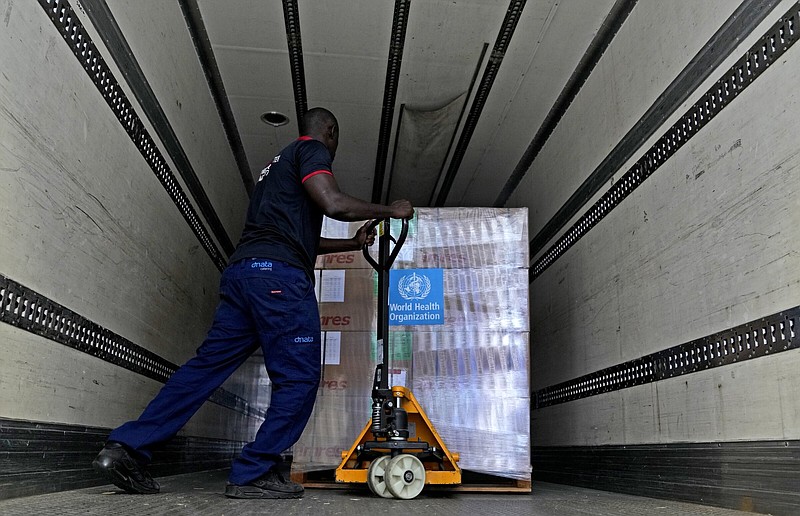ISLAMABAD -- Afghan finance and central bank officials from the Taliban-led government departed for Qatar on Wednesday to meet with U.S. officials, the Taliban said. The meeting comes after a deadly earthquake earlier this month, which brought into focus how relief and emergency aid efforts have stumbled under the weight of the country's spiraling economic woes.
The quake in southeastern Afghanistan killed around 770 people, according to U.N. figures, though the Taliban put the death toll at closer to 1,150, with thousands injured. The U.N. says 155 children are among those killed in what was the deadliest earthquake to hit the impoverished country in two decades.
Several thousand homes were destroyed or badly damaged in Paktika and Khost provinces. Despite international aid efforts by U.N. agencies and countries in the region, survivors say they need more help to subsist.
"We ask for assistance because all our houses are destroyed and we cannot live inside them. People need assistance, we don't have tents or a place to stay," said a resident of Khost province, Tawar Khan.
Overstretched aid agencies say the earthquake underscored the need for the international community to rethink its financial cut-off of Afghanistan and freezing of the country's reserves. Nearly half of Afghanistan's population of 38 million cannot meet their basic food needs. The government is unable to pay public sector wages on time or import what the country needs.
Taliban government officials and U.S. officials were slated to meet in Doha, Qatar on Wednesday to discuss Afghanistan's economy and banking sectors, among other issues, said Taliban Foreign Ministry spokesman Hafiz Zia Ahmad. He said the Afghan delegation, led by Foreign Minister Maulvi Amir Khan Muttaqi, is meeting with the U.S. Special Representative for Afghanistan and officials from the U.S. Treasury Department.
The Washington Post first reported Tuesday that senior Biden administration officials are working with the Taliban leadership on a mechanism to allow Afghanistan's government to use its central bank reserves to deal with the country's severe hunger and poverty crises while erecting safeguards to ensure the funds are not misused.
After the Taliban's takeover of Afghanistan last summer and the collapse of the U.S.-backed government there, some $9.1 billion of Afghan foreign reserves were frozen, with the Biden administration freezing $7 billion of that. The rest is largely held in Germany, the United Arab Emirates and Switzerland, where it also has not been released to Afghanistan's new rulers.
No government has yet recognized the Taliban's rule over Afghanistan. The former insurgents have resisted international pressure to maintain the previous rights gained by Afghan women, instead imposing restrictions on women's dress and limiting access to schools for teenage girls.
Afghan central bank official Shah Mehrabi confirmed to The Associated Press that talks have been ongoing for some time to agree on mechanisms to release some of the Afghan foreign reserves to prop up the afghani currency. This, he said, would help stabilize prices and allow the country to import vital goods to stave off hunger and economic collapse.
"The reserves belong to the Afghan people to be used for the purposes of bringing about stable prices," said Mehrabi, a U.S.-based professor of economics at Montgomery College in Maryland and a member of the Afghan central bank's Supreme Council. He also chairs its audit committee.
